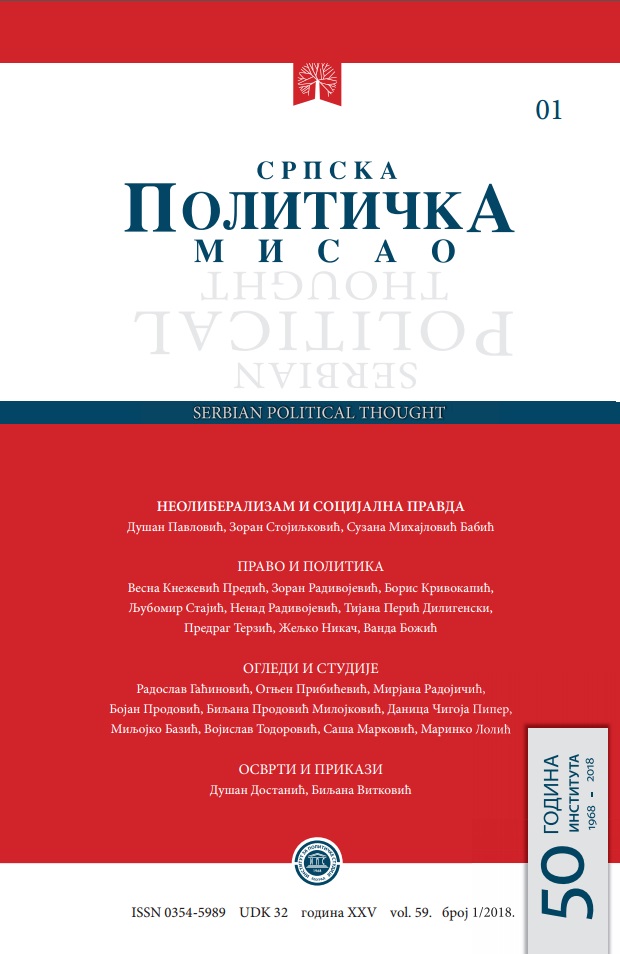Политика безбедности малих држава
The Politics of Security of Small States
Author(s): Radoslav GaćinovićSubject(s): International relations/trade, Security and defense, Politics and law
Published by: Институт за политичке студије
Keywords: state; small state; security; law; politics
Summary/Abstract: In contemporary world system the term “state” implies a limited territory with its own government which claims that it possesses sovereignty and influence over its subordinates that are called citizens. In the beginning of 21st century all regions in the world, with the exception of Antarctic, are placed within the limits of some state and there is no a single territorial region which is placed within the limits of more than one state (although it might happen that the negotiations take place over some territorial border disputes). A state has a legal authority over the use of the weapons within the limits of its own territory. However, despite having authority to do so, one small state is not capable of preserving its own territory by its own power only, even with the use of force. Each small state has a constructed security function, which acts as the service function at the same time, because within the state there are provided the security “services” for the society; developed economy is the material basis of material-technical equipment and professional expertise of the security institutions and services; the law defines vital issues of the society andit also defines socially threatening events which imperil the values and legal basis of the security institutions’ duties and authorities in their prevention and suppression of such events; good social policy prevents the conflicts of social groups with different social life standards and ideology is the basis for the construction of a code of conduct which does not allow for any improvisations or non-security phenomenona to occur. When defining the notion “small state” often due to the need for greater accuracy of defining there is added an additional criteria to the criteria of the number of population in the state, because it is possible that the criteria might differ in defining whether some states are small or not. For example, there might also be included the number of population, the size of the land and GDP into such criterias. On the basis of the abovementioned facts and taking into account both qualitative and quantitative criteria for definition of the small state, it is possible to conclude that the small state can be defined as the entity which is organized by the population existing on a limited territory with internationally recognized borders, which is sovereignly controlled by this population through an organized political system and which has up to ten million inhabitants residing on around one hundred thousand square kilometres. If such state is undeveloped one, than it is considered to be small even if it has twenty millions of inhabitants, regardless of the size of the land on which they live. Therefore, the basic preconditions necessary to obtain for some small state to be considered safe are: thatit has powerfull allies; it has significant natural resources that are wisely exploited; it has nuclear weapons and it has built up and continuously keeps building its own national identity and invests into science, culture and democratization of its society.However, the greatest danger exists for the small states which are rich in raw materials and do not have a stable security system for protection of its citizens and territory.
Journal: Српска политичка мисао
- Issue Year: 2018
- Issue No: 1
- Page Range: 169-183
- Page Count: 15
- Language: Serbian

